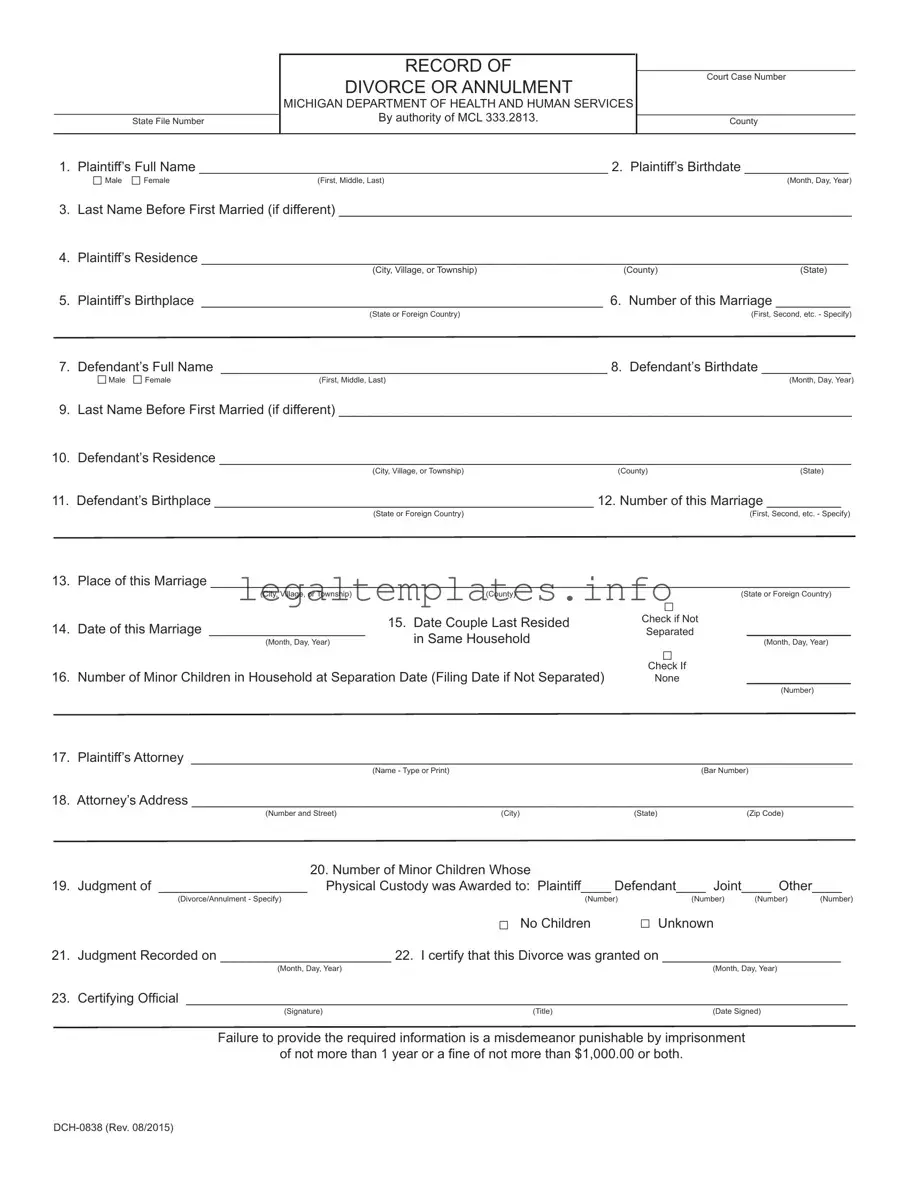What is the Michigan DCH 0838 form used for?
The Michigan DCH 0838 form is used to officially record a divorce or annulment in the state of Michigan. It is a legal document that documents the details of the divorce or annulment as recognized by the Michigan Department of Health and Human Services. This form is essential for updating the marital status in official records and can be used for legal and personal references.
Who needs to fill out the Michigan DCH 0838 form?
Typically, this form is completed by the legal representatives, such as attorneys, of the individuals involved in the divorce or annulment. It may also be required by court officials involved in the adjudication of the divorce or annulment. The information must be accurate and reflect the details of the divorce or annulment process as per the court's final judgement.
Where can one obtain the Michigan DCH 0838 form?
The form can be acquired from the Michigan Department of Health and Human Services. It is also available online on their official website or through the court where the divorce or annulment was processed. Legal professionals often have access to these forms as well.
What happens if the Michigan DCH 0838 form is not completed correctly?
If the form is not completed accurately or is left incomplete, it may lead to delays in the processing of the official record of divorce or annulment. This can affect future legal proceedings, the updating of personal records, and the ability to remarry. Incorrect information may also result in misdemeanor charges punishable by imprisonment or fines.
Is there a deadline for submitting the Michigan DCH 0838 form?
While there is not a specific deadline for submitting this form, it should be filed promptly after the final judgement of divorce or annulment is issued by the court. Timely submission ensures accurate records and avoids legal complications.
How is the Michigan DCH 0838 form processed?
Once the form is filled out and submitted, it is reviewed by the Michigan Department of Health and Human Services or the appropriate county office. Upon verification of the information, it is officially recorded in the state's records. The individuals involved in the divorce or annulment will then receive confirmation that the event has been recorded.
Can the information on the Michigan DCH 0838 form be changed after submission?
If there are errors or changes needed after the form has been submitted, it is important to contact the Michigan Department of Health and Human Services or the court that processed the divorce or annulment. Corrections may require legal documentation or a court order.
Who can access the information recorded on the Michigan DCH 0838 form?
Access to the information on the DCH 0838 form is restricted to individuals with a legal right to view it. This includes the individuals involved in the divorce or annulment, their legal representatives, and certain government officials. Requests for access typically require proper identification and justification.


